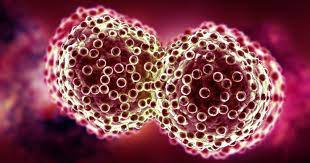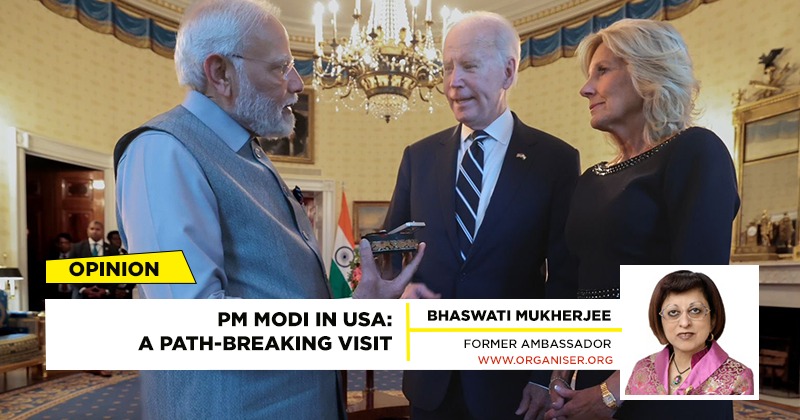Washington: Researchers found cancer cells can adapt to new drugs called CDK2 inhibitors in 1-2 hours, adding that a second drug squelches the workaround. The study was published in Journal, ‘Cell.’ According to new CU Boulder research, cancer cells are smarter than scientists previously thought. When these cells are confronted with powerful new drugs known as CDK2 inhibitors, which are designed to prevent cancer from spreading, they can activate a workaround that allows them to survive the attack in as little as one to two hours.
It reveals how cancer cells complete this adaptation and demonstrates that administering a second, already widely available drug at the same time may stymie cancer cells and shrink resistant tumours. The findings support the theory, which is currently being tested in at least three clinical trials, that two drugs may be better than one when it comes to treating resistant breast cancer.
“Our research suggests that you can potentially have a more effective treatment by combining these new CDK2 inhibitors in clinical development with a drug that already exists,” said senior author Sabrina Spencer, associate professor of biochemistry at CU Boulder. “It also uncovers a very basic, fundamental understanding about how the cell cycle is wired for robustness and why so many tumours manage to proliferate in the face of drugs meant to block proliferation.”
New frontier in cancer treatment
The study, a collaboration with pharmaceutical company Pfizer Inc., centres around a class of new drugs called CDK inhibitors. Cyclin-dependent kinases (CDKs), including CDK 4, 6, 2 and 1, are enzymes that usher all cells, such as skin or breast tissue cells, through the cycle of growth, division and replication. Each of the enzymes has its own function and place in the process, and scientists believe that 4 and 6 kick-starts the cycle.
When CDKs become overexpressed or dysregulated, they can drive tumour formation. Since 2015, the U.S. Food and Drug Administration has approved three drugs to inhibit CDK4 and 6 (Palbociclib, Ribociclib and Abemaciclib), including for the most common subtype of breast cancer, known as HR+ HER2- (hormone receptor-positive, ERBB2-negative metastatic cancer).
The drugs have proven less toxic and more effective than previous treatments, propelling them to blockbuster status with billions of dollars in annual global sales.
But some patients don’t respond to them and many develop resistance, a fact that has prompted researchers to go after a different member of the enzyme family–CDK2. In 2016, Pfizer began collaborating with Spencer, a global leader in time-lapse cell imaging, to study how cancer cells respond to their new CDK2 inhibitor. Spencer’s lab took pictures of living ovarian and breast cancer cells every 15 minutes over the course of two days.
Early on, a surprising discovery emerged.
While CDK2 activity plummeted in the cells upon initial exposure to the drug, within one to two hours, that activity began rebounding. “This was the fastest adaptation we had ever seen,” said Spencer. “It was bizarre.”
While those findings were, initially, disappointing, the researchers continued their research for multiple years to determine what was causing this swift “drop-rebound” effect. It works a bit like a runner who re-enters a relay race to grab the baton from an injured teammate. When the drug disabled CDK2, CDK4 and CDK6 stepped back in to continue prodding the cells to proliferate.
Previous research has shown that when inhibitors take out CDK4 and CDK6, CDK2 comes to the rescue. The new study shows that the reverse is also true. The power of co-drugging In follow-up experiments, the team tried drugging cancer cells in petri cells and in tumors in mice with both CDK2 and CDK4/6 inhibitors.
In both cases, the tumours stopped growing.
The team is still exploring why that happens, but Spencer suspects that CDK4 and CDK6 may stand in the shadows throughout the cell cycle, ready to jump in and assist when CDK2 is impaired. She said CDK2 inhibitors in combination with CDK4/6 inhibitors could, ultimately, be used to help breast cancer patients that haven’t responded well to existing drugs, as well as those who responded well but then relapsed. The findings also shed light on how other drugs could be combined for better results.
“The mammalian cell cycle is commonly conceived as a well-understood, hardwired, invariant pathway, but our work indicates that the cell cycle is much more plastic than generally believed, with multiple adaptive routes under different conditions,” said Spencer. “That’s useful information for any company trying to drug the cell cycle to treat disease.” (With Inputs ANI)




















Comments